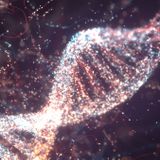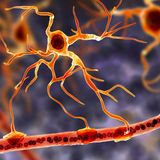RECENT ARTICLES

Researchers can now collect and sequence DNA from the air
Live Science is supported by its audience. When you purchase through links on our site, we may earn an affiliate commission. .We leave DNA all over the place, including in the air, and for the first time, researchers have collected animal DNA from mere air samples, according to a new study. The that living things, human and otherwise, shed into the environment is called environmental DNA (eDNA). Collecting eDNA from water to learn about the species living there has become fairly common, but until now, no one had attempted to collect animal eDNA from the air. "What we wanted to...…Live Science is supported by its audience. When you purchase through links on our site, we may earn an affiliate commission. .We leave DNA all over the place, including in the air, and for the first time, researchers have collected animal DNA from mere air samples, according to a new study. The that living things, human and otherwise, shed into the environment is called environmental DNA (eDNA). Collecting eDNA from water to learn about the species living there has become fairly common, but until now, no one had attempted to collect animal eDNA from the air. "What we wanted to...WW…

These star-shaped brain cells may help us understand depression's biological roots
Live Science is supported by its audience. When you purchase through links on our site, we may earn an affiliate commission. .People with have a distinguishing feature in their brains: They have fewer astrocytes, a type of star-shaped brain cell, compared with the brains of people without mental health disorders, according to a new study. "Astrocytes are hugely affected in depression" in terms of their cell numbers, study co-author Liam O'Leary, a doctoral candidate in the Department of Psychiatry at McGill University in Montreal, told Live Science. "It has been known before now that...…Live Science is supported by its audience. When you purchase through links on our site, we may earn an affiliate commission. .People with have a distinguishing feature in their brains: They have fewer astrocytes, a type of star-shaped brain cell, compared with the brains of people without mental health disorders, according to a new study. "Astrocytes are hugely affected in depression" in terms of their cell numbers, study co-author Liam O'Leary, a doctoral candidate in the Department of Psychiatry at McGill University in Montreal, told Live Science. "It has been known before now that...WW…
- Total 2 items
- 1